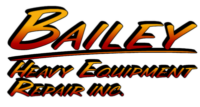Readying Heavy Equipment for the Spring
Now that spring is on the way, construction’s busy season is just around the corner, too. Construction equipment maintenance is key to getting your business off to a great start in Lexington, OR. The rain, snow, wind and ice can take their toll on your machinery. You’ll need to do some preparation to get it ready for your next job. Whether you take care of your equipment maintenance yourself or leave it to the experts at Bailey Heavy Equipment Repair, Inc., make sure you make it your top priority.
Here’s a guide to getting your fleet ready for the jobs on your calendar this spring.
Why you need to perform spring maintenance
Pre-season maintenance is important for a few reasons. First, you need your machines to be ready for the first jobs that come along—if they’re not well maintained, you could miss out on income. Second, failing to perform this maintenance doesn’t just mean your equipment might not be up to the task. It could also be a serious safety hazard, affecting your workers, the property and bystanders.
Cold weather, ice and snow can wreak havoc on your machinery. Seals can break, fluid freezes and metal can crack. If you winterized your equipment before the inclement weather set in, you’re less likely to have problems—but you still need to perform spring maintenance to ensure everything is operating smoothly.
Getting equipment ready
Here’s a closer look at how to get your heavy equipment prepared for springtime jobs:
- Perform spring maintenance: Your spring maintenance can be done in-house, or you can hire a professional team to whip all your equipment into shape. Basic tasks like changing fluids and filters and cleaning up the interiors are easy to do on your own, but if you run into any issues, you’ll probably need the help of a heavy equipment repair service.
- Keep a maintenance log: As you or a professional service are performing maintenance, make sure to keep maintenance logs. They should note the serial and model number, hours of service, date of maintenance, repair history and other important details about each individual vehicle.
- Organize your paperwork: This is also a good time to get out your equipment paperwork, including insurance documents, warranties and your professional licensure. Having these documents handy will help in case of any issues.
Inspection tasks
After your spring maintenance is complete, perform a thorough inspection. Before you take your equipment out on the job, check of all the following components one more time. If any of them are malfunctioning, have them repaired before you need to go out on a job. (This is another reason it’s smart to take care of your spring maintenance as soon as possible—you don’t want a job to be delayed because of a malfunctioning part.)
- Brakes
- Lights and flashers
- Hoses and seals
- Engine belt
- Tires
- Boom and arm
- Battery
- Warning stickers
Once your fleet has been brought up to speed and inspected, you’ll be ready for another successful construction season.
Why not let the pros take care of your spring heavy equipment maintenance in Lexington, OR? Call Bailey Heavy Equipment Repair, Inc. today to learn more and schedule service.
